Manuel!
The Foyer
John Cleese’s first move after the massively successful sketch show Monty Python’s Flying Circus was a guest starring role in Sez Les, Les Dawson’s sketch and stand-up show for ITV.
Les Dawson was a superb comic storyteller and the show has many fine moments, but probably the best thing it did for the public at large was - along with a few lucrative adverts - to give Cleese and then-wife Connie Booth enough money to spend a year on their next project.
John Cleese as a hotel manager in the first show he made after “Monty Python”
Fawlty Towers is John Cleese’s shot at making the best sitcom in the world, after having made the best sketch show in the world.
Basil Fawlty (Cleese, based on a genuine, magnificently rude hotel manager the Python team had encountered while on location) runs a hotel in Torquay, overseen by his necessarily draconian wife Sybil (Prunella Scales) and aided by maid Polly (Booth) and the waiter Manuel (Andrew Sachs).
Why it’s so great
The Fab Four - Basil, Sybil, Polly and Manuel
When we watch Fawlty Towers, we really root for most if not all the characters. Polly is kind and competent. Manuel is kind. Basil is doing his best, after all. And even Sybil, on first glance something of a harridan, has an idiot husband to herd, and actually deals with him with patience as well as firmness.
It took being married myself to fully appreciate the benefits of a woman who Gets The Important Stuff Done although admittedly in Sybil’s case this is done in small but efficient bursts of activity that punctuate generally loafing around smoking cigarettes while making Basil run around all day.
Basil is an irritating, insufferable middle-class English snob with ideas above his station. He picks relentlessly on the Spanish waiter Manuel, whose usefulness is hampered by his poor grasp of English (which means Fawlty gets to underpay him, of course).
Manuel means well but will always mess up, often, but not always, due to lack of clear instruction from Basil.
Polly is the straight man, the one stable figure in the regular cast, coming to the rescue when one of the men inevitably messes up.
Sybil rarely stops nagging Basil but neither will she ever leave him.
Basil never learns a bloody thing.
The plotting is meticulous…
It took Cleese and Booth six weeks to craft, chisel and polish each episode, a geological age by the conveyor-belt-driven standards of the 70s, and it shows.
It shows in the absolute precision of every plot, every gag and every nuance. The dialogue never seems forced. Even the “thought bubble” asides are always exactly what the character would be thinking rather than a shoehorned gag.
…as is the script.
The dialogue never seems forced, even in the most sitcommy of situations.
For example, if a sitcom woman is in hospital for an ingrowing toenail, her henpecked husband might feasibly utter the line “Wish it was an ingrowing tongue”. A quick, cheap aside and a slight titter.
In the hands of Cleese and Booth this becomes the eventual punchline to a telephone conversation that builds and builds.
“Hello? I was just doing it, you stupid woman, I just put it down to come here to be reminded by you to do what I'm already…
“What's the point of reminding me to do what I'm already doing? What is the bloody point? I'm doing it, aren't I?…
“ Yes, I picked it up.
No, I haven't had a chance yet.
I've been at it solidly ever since I got back.
Yes, I will.
No, I haven't yet, but I will, yes, I know it…
I'll try and get it cleared up.
Anything else? I mean, would you like the hotel moved a bit to the left, or…
Enjoy the operation, dear, let's hope nothing goes wrong…
(puts down the phone)
(mutters to himself ) “I wish it was an ingrowing tongue”
Teamwork
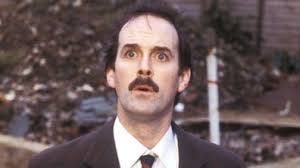

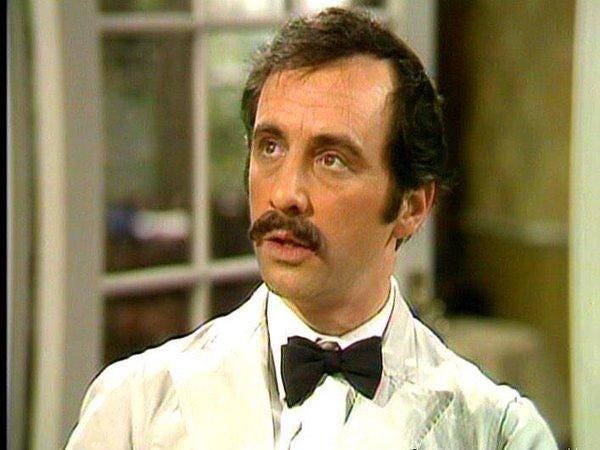
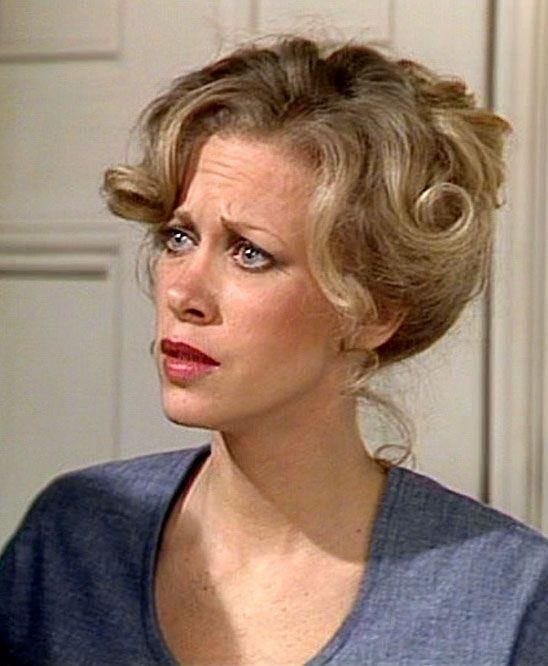
The four regulars, all reacting to imminent doom as usual.
It was said of the other, original Fab Four that they made complicated music that seemed very simple on the surface. And in the same way that the musicianship of the Beatles is perfect for their songs, the acting and interaction of the four leads in Fawlty Towers is perfect for the story.
There are no real stars. Every regular and guest actor is chosen and drilled to be totally in service to the story. This is a trait of all of John Cleese’s work from Monty Python’s Flying Circus to Hold The Sunset.
You wouldn’t want one of the other Pythons making a “special guest appearance” and potentially stealing the show.
On the face of it, this is a classic traditional British farce with its putdowns and pratfalls, with the four protagonists stuck in an endless behavioural loop which will, in all probability,continue for years to come.
When two people who were kids in the 70s meet for the first time, all it takes to bond is for someone to say “Don’t mention the war!” and they get a smile.
Where the show is so not great (then and now)
It’s tempting to say that Fawlty Towers is never “not great”, but from a purely comedic point of view, The Psychiatrists seems to pull back the curtain a little too much. When in-universe characters are intimating that Basil is possibly certifiably insane, the comedy just doesn’t seem quite as funny.
Apart from that, it is almost perfect.
I challenge anybody to give an example of a comedy that has fewer mis-steps over its entire run. The only times Fawlty Towers does this is when we watch with modern eyes.
Don’t mention the N-word!
A society’s standards are mirrored by the television it watches.
Most swear-words have made an appearance on prime-time television by now, yes, even the C-word, albeit generally in stealth mode.
What is regarded as taboo changes down the ages, and that isn’t limited to words alone.
Concepts and portrayals are what tends to be under the microscope now, rather than whether somebody used the F-word too often.
Before you form an opinion on the dialogue quoted below, you need to be aware of the societal and TV norms of the 1970s.
I grew up brown in South London in the 60s and 70s, in a world where the N-word (and the P-word and others) were used frequently towards me and others, in the playground, in the street and in the workplace, by friends and strangers alike, not even intending any offence most of the time.
Look at other contemporary sitcoms and to varying degrees, you will find casual racist language and attitudes expressed in each and every one of, for example, Whatever Happened To The Likely Lads, The Good Life, Till Death Us Do Part, Love Thy Neighbour, Reginald Perrin, Porridge, Rising Damp and so on.
Here, then is one example of Fawlty Towers’ dialogue, from the final episode of the first series The Germans. Basil is talking to long-term resident Major Gowan.
Major - “I knew (a woman) once – striking-looking girl – tall, you know – father was a banker
Basil - “Really"
Major - “Don’t remember the name of the bank”
Basil - “Never mind”
Major - “ I must have been rather keen on her because I took her to see India!”
Basil - “India?”
Major - “At the Oval – fine match, marvellous finish – now, Surrey had to get thirty-three in about half an hour – she went off to powder her – powder her hands or something – women – er – never came back”
Basil - “What a shame”
Major - “And the strange thing was. . . throughout the morning she kept referring to the Indians as n*****s. ‘No no no,’ I said, ‘the n*****s are the West Indians. These people are wogs.’ ‘No, no,’ she said. ‘All cricketers are n*****s.’”
Basil - “They do get awfully confused, don’t they? They’re not thinkers. I see it with Sybil every day”
Major - “I wish I could remember her name. She’s still got my wallet”
Written down without context in 2025 like that it looks dreadful. When you see it on screen in 2025 - well, it’s worse.
But remember this is 1975. The meaning and power of words changes.
You can argue that it is not being said with the backing of the POV characters, which is true.
The lines are spoken by that classic English archetype, the bluff old dodderer of a retired Army Major. Probably a couple of squaddies short of a platoon, a buffoon not a bastard, not to be taken seriously. We laugh at him, not with him, which does make a difference.
I would strongly recommend watching the whole episode. Apart from anything else it could well be the finest half-hour of comedy I’ve ever seen.
The most remembered scene from this episode involves Basil, admittedly not fully recovered from a blow on the head and not thinking straight, making a string of tasteless jokes to some German hotel guests culminating in a reprise of Cleese’s “Ministry Of Silly Walks” from Python but with a mimed Hitler moustache and goose stepping.
Again, in this scene we are laughing not at the Germans, who are portrayed as kind and reasonable, but at Basil’s embarrassing behaviour towards them by making aggressive Nazi references.
When you remember that when this was first broadcast, anybody over 40 could actually remember the War, and that this episode was always far and away the best loved of the entire run, I think that says a lot about those who made the show.
And those who watched and loved it.
The Check Out
Fawlty Towers is currently unavailable for legal streaming (in the UK at least) and rarely gets repeated.
The entire series is, however, freely available to purchase on eBay in its full and unadulterated physical form, yours to keep forever regardless of the whims of TV rights holders and grumpy old creators.
John Cleese is currently working with his daughter Camilla on a sequel series to Fawlty Towers, set in the present day.
And a stage show is currently running in the West End featuring adaptations of three of the TV episodes. Yes, The Germans is one of them. Yes, they have removed the bad words, seemingly a little regretfully from the following quote from Cleese:
There was a scene where the Major used a couple of words you can’t use now, racial slurs it would come under, so we took that out.
There’s always a problem with comedy that you deal with the literal-minded. The literal-minded don’t understand irony. That means if you take them seriously, you get rid of a lot of comedy, because literal-minded people don’t understand metaphor, and they don’t understand irony, and they don’t understand comic exaggeration… they’re not playing with a full deck.
It’s a very deep statement from a pretty smart guy. I read it to be aimed at people on both sides of the argument - free speech warriors and social justice warriors alike.
I can almost see his point. Look, John Cleese is a legend as far as I’m concerned. I still love pretty much his entire output, including the Major’s cricket speech. Yes, he has jsaid some things that could be misinterpreted. And I choose to believe that he really has no idea what GB News are really about, or he would never have thrown his lot in with them.
Good luck to him with the revival. If I was writing it, I’d set it, say, thirty years on from the original and have Polly and a suave silver-fox version of Manuel running the place, with a recent immigrant from Iraq who speaks no English at all working as a waiter, whose mistakes Manuel explains away by saying “I’m terribly sorry. He’s from Baghdad”.
And playing Basil, now retired, a bit doolally, yearning for the old days and prone to embarrassingly insensitive outbursts, which Manuel explains away by saying “I’m terribly sorry. He’s from Weston-Super-Mare”.
The opening credits for each episode showed the hotel sign with the letters re-arranged - Fatty Owls, Warty Towels, and so on - but this is my favourite.

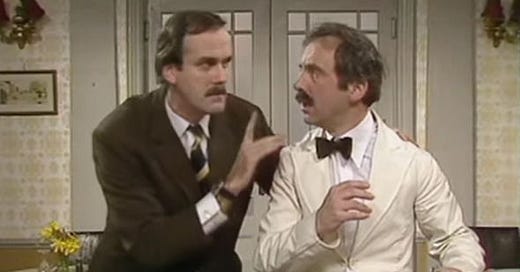



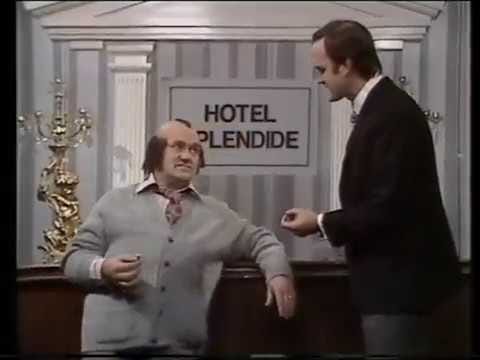
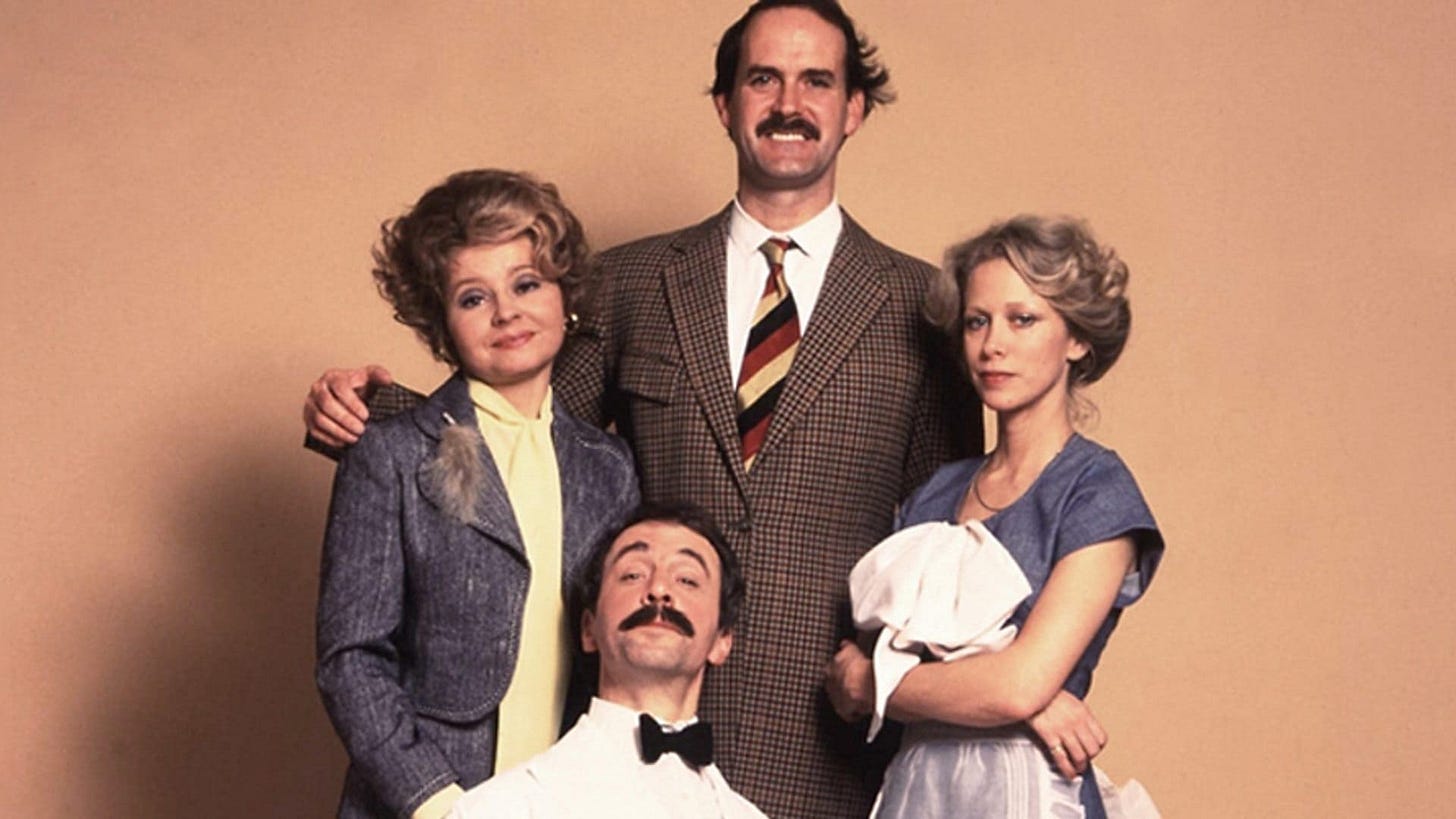
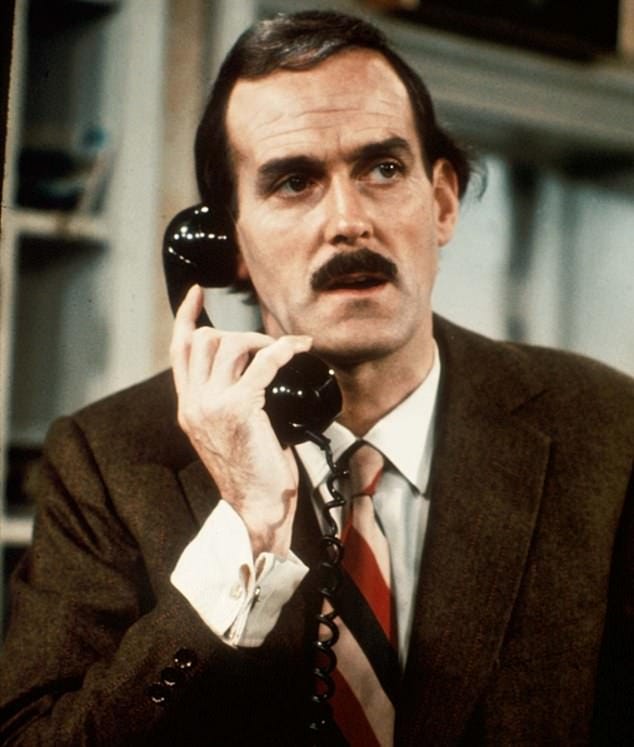
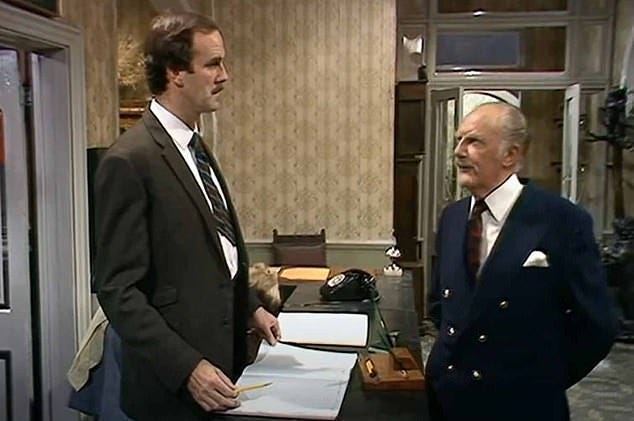
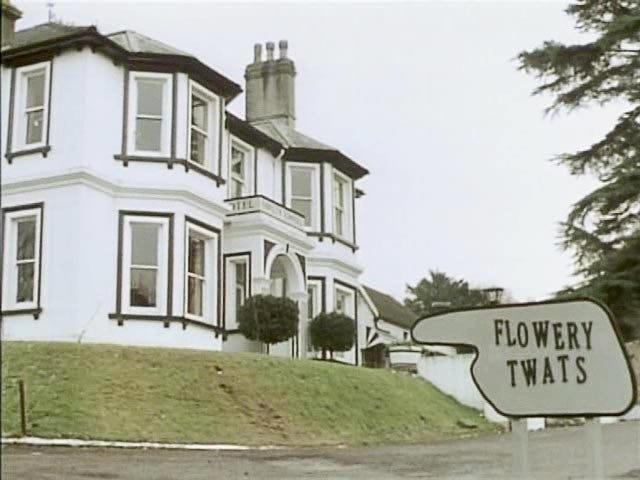
It was beautifully crafted. And it was a rarity in that it was repeated a lot in the UK during the 70s and 80s, so it had an advantage in insinuating itself into the collective psyche.
I immediately thought of the ingrown tongue and then The Germans hysteria..Always loved watching this on the PBS station when living in NYC.